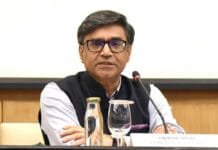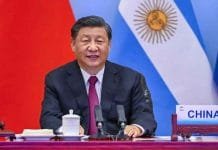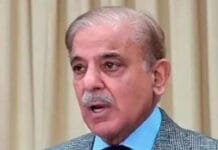INVC NEWS Islamabad – Tensions between India and Pakistan have escalated recently, with both nations ramping up their defense strategies. As part of India’s ongoing efforts to ensure border security, the country has utilized its advanced S-400 defense shield to intercept and shoot down Pakistani drones. Meanwhile, Pakistan’s Defence Minister Khawaja Asif has made a highly controversial statement in the Parliament, revealing that Madrasa children are stepping forward in Pakistan’s defense efforts against India. This statement has ignited a firestorm of debate within Pakistan and abroad.
Khawaja Asif’s Statement on Madrasa Children
In a recent speech, Khawaja Asif remarked that Pakistan’s Madrasa children are not only engaged in religious work but have also been recruited to aid in the defense efforts during times of crisis, specifically during India’s air strikes. His words raise significant concerns, particularly about the use of children in conflict situations and the ethical implications surrounding this strategy. Asif’s comment was made in the wake of India’s airstrike, where nine terrorist hideouts across Pakistan were destroyed.
According to Asif, these children have been part of the religious and defense fronts—a blend of their religious duties and responsibilities in the face of India’s growing military presence. His statement has sparked intense reactions from various political circles, both within Pakistan and internationally. Some critics argue that such actions could be an attempt to gain sympathy for Pakistan by portraying these children as innocent victims of the ongoing conflict, rather than focusing on the broader issues of military aggression.
India’s Response and Drone Strikes
India’s recent strike on nine terrorist hideouts in Pakistan has further fueled the animosity between the two nations. In the aftermath of these strikes, Asif spoke about the drone explosions in Pakistani airspace, emphasizing that while drones were spotted over Pakistani territory, the military refrained from shooting them down. According to the Defense Minister, if the Pakistani forces had shot down these drones, it could have led to a counterattack by India, potentially resulting in a larger conflict. Asif defended the Pakistani military’s decision, claiming that no significant loss occurred due to the explosion of the drones.
His remarks about the restraint exercised by Pakistan’s military in handling drone attacks reflect a desire to de-escalate the situation, even as tensions simmer on both sides. The statement raises concerns about the ongoing aerial and drone warfare between India and Pakistan, both of which have been upgrading their military technologies to secure their borders.
International Allegiances: Turkey and China’s Support
In his 8-minute speech, Asif also pointed out the international support Pakistan has received. He mentioned that countries like Turkey and China have openly shown solidarity with Pakistan, particularly during times of heightened conflict. Asif emphasized that while India had conducted airstrikes, Pakistan’s military bases had not been directly targeted, leading him to claim that the situation, though tense, had not yet caused substantial losses for Pakistan.
A Shocking Confession: Khawaja Asif on Terrorism
In addition to his comments on the Madrasa children and defense, Khawaja Asif made a controversial confession regarding terrorism. In an earlier interview with Sky News, Asif admitted that Pakistan had, in the past, promoted terrorist activities under the influence of external powers like Britain and America. This admission sheds light on the historical context of Pakistan’s involvement in regional conflicts, particularly in relation to Afghanistan and India.
Asif’s frankness in acknowledging Pakistan’s past role in fostering terrorism has raised eyebrows on the international stage. His remarks also underscore the complex nature of geopolitical alliances and the consequences of past decisions that continue to shape the present-day situation in the region.
The Impact of These Statements on India-Pakistan Relations
The statements made by Khawaja Asif regarding Madrasa children and defense, along with his acknowledgment of terrorism, have added fuel to the already volatile situation between India and Pakistan. Both countries are on high alert, with India’s S-400 defense system actively intercepting Pakistani drones, and Pakistan taking defensive measures by deploying religious institutions in its military response. These actions indicate the increasing militarization of the conflict, with each nation leveraging its unique strengths to assert dominance.
As the situation continues to unfold, the international community remains watchful, as any further escalation between these nuclear-armed nations could have catastrophic consequences. The diplomatic efforts, if any, are likely to be tested in the coming weeks, with global powers keeping a close eye on the developments.
Conclusion: A Dangerous Crossroad for India and Pakistan
The ongoing conflict between India and Pakistan, exemplified by Khawaja Asif’s controversial comments, showcases the fragility of peace in the region. With Madrasa children being used in defense roles and Pakistan grappling with its military strategy, the situation remains fluid and precarious. The world waits to see how India and Pakistan will navigate this crisis, and whether diplomacy can prevent the situation from spiraling out of control.














